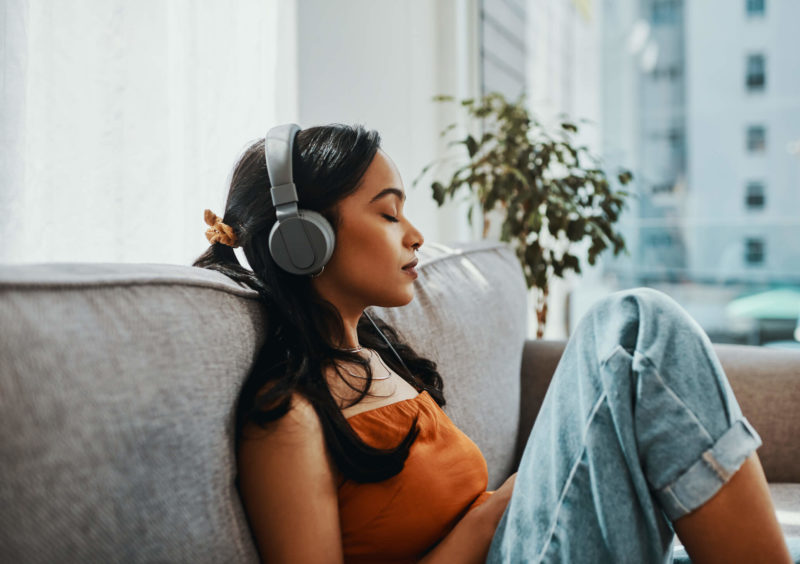Music’s Ability to Reduce Fear and Anxiety

By Carey Cloyd, Marriage and Family Therapist
Music’s Ability to Reduce Anxiety and Fear
Music is a powerful thing. When we are feeling anxious or fearful, music can help bring about a sense of calmness and relaxation. Consider the soothing effects of the music played in a spa or a restorative yoga class. In those environments, peaceful music tells our bodies and our minds it’s okay to relax. Music’s ability to reduce anxiety and fear is something we can use as a helpful tool in our everyday lives.
Harnessing the Soothing Power of Music
We can implement the same strategies ourselves wherever we may find ourselves. We can choose to play soothing music in any of the following settings:
- At home (where most non-essential workers find themselves much of the time during this pandemic)
- In the car
- While taking public transit or traveling in an airplane
- While exercising outside (walking, biking, hiking, etc)
Headphones can be a good option if there are noises in your immediate environment, if you are on the move, or if you are not wishing to disturb others around you.
Finding the Right Music for You
What types of music are calming will vary from individual to individual. You may have a particular style of music that is especially meaningful to you. Also, there may be certain types of music that you gravitate towards when in certain moods.
That said, it is relatively easy to look for playlists or channels using keywords like “calm,” “calming spa,” “chill,” “chill out,” “meditate,” “meditation,” “nature,” “relax,” “relaxing,” “relaxation,” “soothe,” “soothing,” “spa,” etc. These provide ready-made playlists and affirm that there is a need for and benefit to this kind of intentional listening.
You have plenty of options. Slow, quiet classical music can work well for this. Nature sounds can remind us of rain, waterfalls, streams, the ocean, wind, birdsong, crickets – the rhythms of the natural world. While we may not be outside ourselves or able to travel to those destinations at this time, we can experience the soothing effects through the music itself – regardless of our environment.
Whatever type of music you choose, this kind of listening can help reduce anxiety and fear by lowering your pulse and heart rate, dropping blood pressure, and decreasing stress hormones.
Singing Along
Singing along with songs can also be a way to invite the effects of the music to strengthen. One of the difficult effects of the COVID-19 pandemic is isolation. While it is not advisable to be singing in person with people outside one’s house (all those deep breaths can lead to germ-sharing), it is safe to sing along with the music we are listening to – especially when at home in an enclosed space. Singing along has mental health benefits, including helping you feel more connected.
Readying Yourself for Sleep
Choosing to listen to calming music in the evening can help induce sleep and reduce insomnia. That can be helpful as a way to disengage from the devices many of us are looking at during the day, as there does not need to be visual engagement other than starting and stopping the music itself.
Making It a Habit
A client of mine recently shared that after a recent session – which she engages in from the relative comfort and privacy of her car – she chose, instead of listening to a news channel on the radio, to select a station of spa music. She noted that she felt much less stress as a result and found herself feeling more at ease and spacious. This choice allowed her to reflect on the content of the psychotherapy session and to digest it more consciously as she transitioned during the drive to the next portion of her day with various responsibilities and tasks. She is considering making it one of her habits and utilizing this form of self-care at other times and in other ways.
Listening to music can be a very effective stress management tool to help you reduce anxiety and fear, and I encourage you to make use of it!
© Copyright 2007 - 2025 GoodTherapy.org. All rights reserved.Find a therapist today for customized recommendations of strategies and tools that can help you thrive.
The preceding article was solely written by the author named above. Any views and opinions expressed are not necessarily shared by GoodTherapy.org.